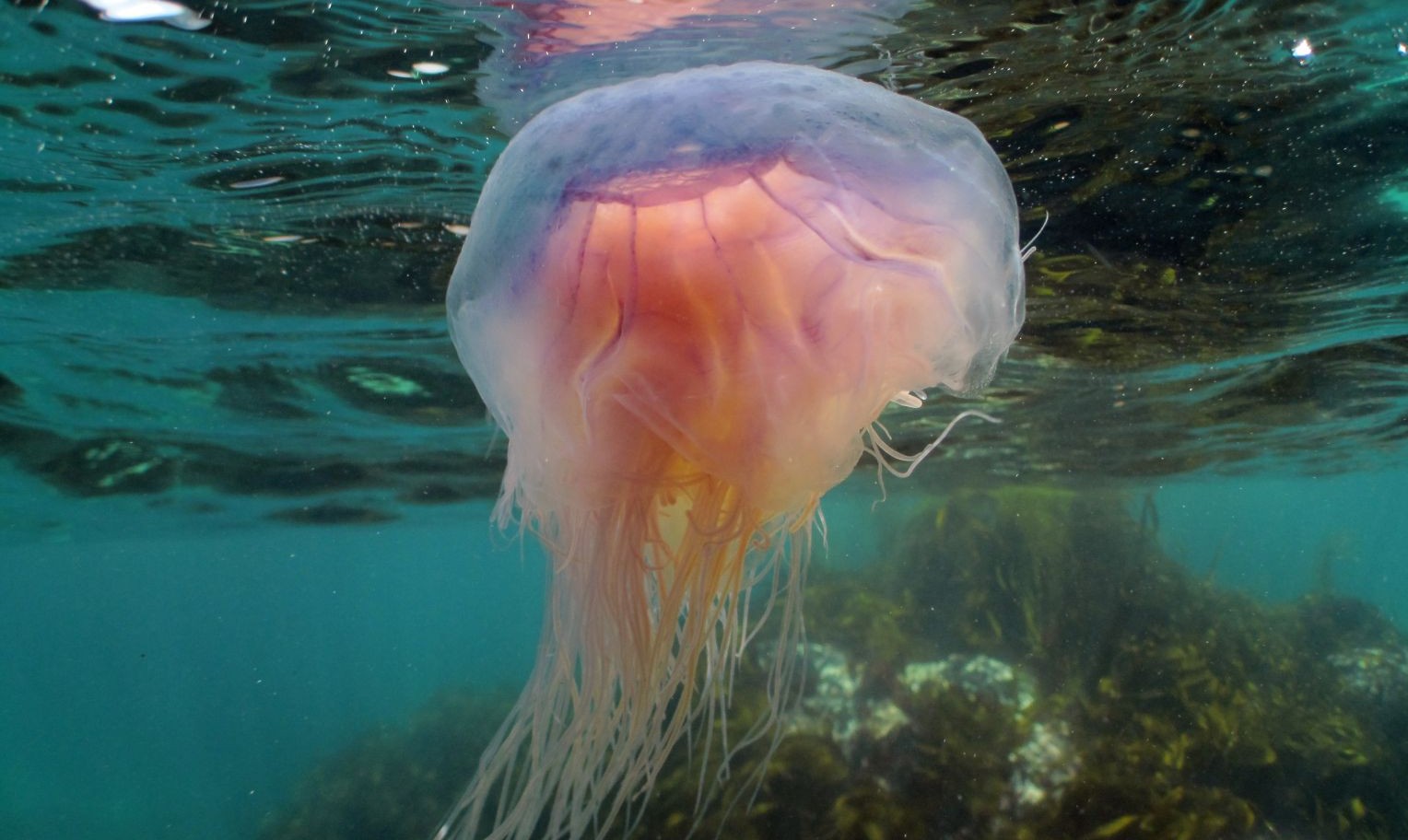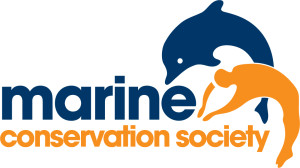News
Moon, compass, blue and lion’s mane – it’s a blooming good time for jellyfish

Beach users urged to report jellyfish finds on UK beaches
 The Marine Conservation Society (MCS), the UK’s leading marine charity, says the number of jellyfish blooms – when jellies mass together – in UK coastal waters is on the increase as our seas start to warm up.
The Marine Conservation Society (MCS), the UK’s leading marine charity, says the number of jellyfish blooms – when jellies mass together – in UK coastal waters is on the increase as our seas start to warm up.
Every summer hundreds of reports of jellyfish sightings are made to the MCS National Jellyfish Survey – now in its 14th year. The survey is providing valuable information about where and when jellyfish occur in UK seas amid global reports of a rise in jellyfish numbers.
Up until July, it’s been a relatively quiet year for jellyfish reports, unlike the last two years when record numbers of barrel jellyfish were reported around UK seas through the spring and summer.
Dr Peter Richardson, Head of Biodiversity and Fisheries at the Marine Conservation Society, said: “There’s evidence that jellyfish numbers are increasing in some parts of the world, including UK seas. Some scientists argue that jellyfish numbers increase and then decrease normally every 20 years or so; however, others believe and these increases are linked to factors such as pollution, over-fishing and possibly climate change. The MCS jellyfish survey helps provide some of the information we need to understand more about these ancient creatures.”
Although the charity has received reports of barrel jellyfish sightings, the number of blue and moon jellies are starting to pick up as the waters around the UK warm up, with mass strandings of both species in South West England and Wales.
Lion’s mane jellyfish – which have a powerful sting – have also been reported from beaches in Scotland and around the Irish Sea. MCS says that anyone who comes across a jellyfish at sea or on the beach should look but don’t touch, but report their sightings at www.mcsuk.org.
Jellies to look out for in UK waters:
Moon (Aurelia aurita)
Most widespread species, occurring all around the UK coast from May.
Blue (Cyanea lamarkii)
Less common than the moon but can turn up anywhere.
Barrel (Rhizostoma octopus)
Can grow up to 1 metre in diameter and weigh up to 40kgs, totally harmless despite its size and is largely limited to the Irish Sea and adjacent waters to the north. Can be spotted all year round, even in winter, but blooms tend to start in March.
Lion’s mane (Cyanea capillata)
Has the most powerful and painful sting of the UK species. It blooms during the summer but is rarely seen south of the Irish Sea (west coast), or south of Northumberland (east coast), with most reports coming from Scottish waters.
Compass (Chrysaora hysoscella)
Has bizarre compass-like markings and is found throughout the UK coast.
Mauve stingers (Pelagia noctiluca)
Occasionally recorded from the southwest in early spring, but large numbers were reported off Britain’s west coast during November 2007, 2008 & 2009.
Portuguese Man-of-War (Physalia physalia)
Rare in UK waters but MCS received many reports from beaches in south-west England in the summers of 2007, 2008 and 2009.
“We still know relatively little about jellyfish and what drives changes in their numbers, so reporting even a single one can help. One thing we do know is that Leatherback turtles travel to UK waters to feed on jellyfish and are usually recorded along the west coast of the UK between May and October – this year we’ve already heard of sightings from the south west of England and the Irish Sea.” Says Dr Richardson.
Gear News
Introducing the TR-80, IR-50 and CS-30 Regulators from DYNAMICNORD

Whether you are a beginner or a professional diver – with the three new main regulators from DYNAMICNORD, everyone will find their favourite regulator. They all look super stylish.
Excellent performance with the TR-80
Quality and performance are the be-all and end-all for regulators. It is not for nothing that the TR stands for Tec Reg. The innovative design of the TR-80 guarantees absolute reliability – even in ice-cold waters.

Perfect breathing effort at 0.8 J/l / certified for diving in waters below 10 degrees / structural design made of solid brass for best cold protection / membrane-compensated design with dry seal of the first stage / reduced exhalation effort thanks to optimized exhalation membrane and bubble deflector / adjustable Venturi (dive/predive) and adjustment knob for individual inhalation comfort / innovative design of the front cover prevents free-flow in strong currents or when diving with scooters / design made of sandblasted brass, matt chrome finish / 2 HP and 4 LP outlets / mouthpiece made of high-quality, anti-allergic silicone for maximum comfort.


Amazing underwater adventures with the IR-50
The IR-50 is the top regulator for advanced and experienced divers. Natural breathing is the essence of this regulator.

Ideal breathing effort at 0.8 J/l /certified for diving in waters below 10 degrees / compensated membrane / adjustable venturi (dive/predive) and adjustment knob for individual inhalation comfort/ outlet valve and deflector for minimum exhalation effort and reduction of bubbles on the face / design made of sandblasted brass, matt chrome finish / 2 HP and 4 NP outlets / mouthpiece made of high-quality, anti-allergic silicone for maximum comfort.


The Workhorse – our CS-30
For diving centres and diving beginners – the workhorse stands for strong construction, reliability and robustness. Perfect for your training.

Optimal breathing effort at 0.8 J/l /recommended for diving in waters above 10 degrees / non-compensated piston / adjustable venturi (dive/predive) / outlet valve and deflector for minimum exhalation effort and reduction of bubbles on the face / design made of sandblasted brass, matt chrome finish / 1 HP and 3 NP outlets / mouthpiece made of high-quality, anti-allergic silicone for maximum comfort.


Octopus OP-30
The OP-30 is the ideal addition to all DYNAMICNORD regulators. It is identical in construction to the CS-30.

The TR-80, IR-50, CS-30 (DIN & INT) regulators and the Octopus OP-30 are available from DYNAMICNORD dealers and in the online store.
DYNAMICNORD – Your Outdoor Companion.
Marine Life & Conservation
Paul Watson Released as Denmark Blocks Japan’s Extradition Bid

Renowned anti-whaling activist Paul Watson has been released from custody in Greenland after spending five months in detention. Denmark’s Justice Ministry rejected Japan’s request for his extradition, citing insufficient guarantees that his time already served in custody would be credited against any potential sentence.
The 74-year-old Canadian-American was arrested on July 21 in Nuuk, Greenland’s capital, when his ship docked to refuel. His arrest was based on a 2012 Japanese warrant related to a 2010 encounter in Antarctic waters. Japan alleged Watson obstructed operations and caused damage to a whaling research ship during efforts to disrupt illegal whaling. Watson has consistently denied these claims, maintaining his commitment to marine conservation.
Denmark, which oversees extradition matters for Greenland, concluded that while the legal conditions for extradition were met, the lack of assurances from Japan regarding time-served credit made extradition untenable.
In a video shared by his foundation, Watson expressed gratitude and relief, saying, “After five months, it’s good to be out… and good to know they’re not sending me to Japan.” He added that the most difficult part of his time in custody was being separated from his two young sons.
Watson is a pioneering figure in marine conservation, known for founding the Captain Paul Watson Foundation in 2022 after decades of activism with the Sea Shepherd Conservation Society. His bold efforts to defend marine life have earned him widespread support, including from celebrities and conservationists. His work has also been featured in the acclaimed reality TV series Whale Wars.
Watson’s lawyer, Jonas Christoffersen, praised the decision, stating, “We are happy and relieved that Paul Watson is now free.” He added that Watson is eager to reunite with his family and continue his vital work.
The arrest occurred while Watson’s vessel, the M/Y John Paul DeJoria, was en route to the North Pacific with a team of 26 volunteers to intercept a Japanese whaling ship. His foundation described the arrest as politically motivated and emphasized that Watson’s actions were focused on ending illegal whaling practices.
Japan resumed commercial whaling in 2019 after leaving the International Whaling Commission, asserting that whale meat is a cultural tradition. Conservationists, however, continue to challenge these practices, highlighting their impact on marine ecosystems.
Despite the challenges, Watson remains steadfast in his mission to protect marine life and bring attention to whaling practices. His dedication to ocean conservation has made him a globally respected advocate for the environment.
-

 News2 months ago
News2 months agoIconic SS United States to become the World’s Largest Artificial Reef
-

 News3 months ago
News3 months agoBook Review – 52 Assignments: Underwater Photography
-

 Gear News3 months ago
Gear News3 months agoDYNAMICNORD – New German diving brand enters the British market
-

 News3 months ago
News3 months agoExploring Cenote El Pit: A Diver’s Dream
-

 Gear News3 months ago
Gear News3 months agoTry BARE drysuits (and maybe even win one!) this Friday with Sea & Sea at North West Dive Fest
-

 Marine Life & Conservation3 months ago
Marine Life & Conservation3 months agoBook Review: Coral Triangle Cameos
-

 Blogs2 months ago
Blogs2 months agoDive the Egyptian Red Sea this Autumn with Regaldive
-

 News3 months ago
News3 months ago2024 Ocean Art Underwater Photo Competition Announced















